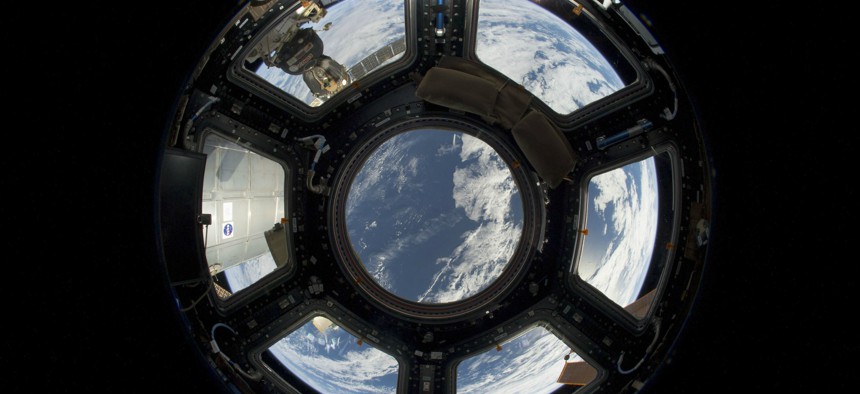
NASA
NASA Is Engineering Calorie-Dense Food Bars to Feed Astronauts Bound for Mars
These aren’t your kitchen cabinet granola bars.
These aren’t your kitchen cabinet granola bars.
NASA is developing a line of high-tech, nutrient-dense food bars for its planned Orion missions into space. They are meant for sustaining space travelers during the two-and-a-half years it will take to fly to Mars and back.
When it comes to packing food on board, engineers hope to save space by stocking more meal replacement food bars, which currently come in at least four flavors: banana nut, orange cranberry, ginger vanilla and barbecue nut. Each bar contains 700-900 calories and is designed to be a substitute for breakfast.
On the International Space Station at the moment, astronauts can choose between about 200 different meal options. But on smaller spacecrafts, where cargo weight and storage space are more tightly controlled to ensure enough room for fuel, the U.S. space agency is looking for ways to maximize efficiencies.
Earthlings use food bars to replace meals on occasion— not always successfully — but there are no reliable products for the long-term, wholesale replacement of meals. “There’s no commercially-available bar right now that meets our needs, so we’ve had to go design something that will work for the crew, while trying to achieve a multi-year shelf-life,” NASA said in a statement.
It’s not just food bars with which the space agency has been experimenting. Engineers are also looking to optimize in-flight management of fresh vegetables , too.






